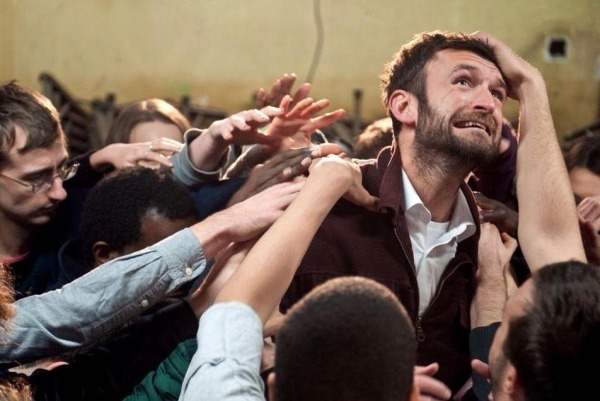Catherine Love: The specifics of site
As site-specific theatre becomes ever more ubiqutious, perhaps it is time to question what the label really means

I have written about the importance of space before, suggesting that "site-specific" is a bit of a misnomer and arguing that "all theatre is in dialogue with its site, whether consciously or not". What would a site-unspecific production look like, I often ask myself when reading about shows staged in ever more unlikely and spectacular surroundings. No production exists in a vacuum; even if it is staged in a traditional proscenium arch theatre or touring from studio to studio, every piece of theatre is surely specific to its site for at least the duration of that particular performance.
The next big site-specific/immersive production is RIFT's (formerly RETZ) overnight Macbeth, which has just unveiled its venue: Poplar's big, brutalist Balfron Tower. It promises "a fevered festival-like dream of characters sleepwalking through walls, confiding plots and conspiring murder in this lively and ambitious retelling of Shakespeare’s Scottish play".
It's hard not to admire RIFT's ambition. The last production of theirs that I saw was The Trial, an audacious reworking of Kafka's chilling short story that sent theatregoers first around Hoxton and then to the labyrinthine "Department for Digital Privacy". Its immersion felt like a genuinely investigative way of approaching Kafka's text, even if the piece fell short – for me, at least – of its impressive aims.
“Every piece of theatre is surely specific to its site for at least the duration of that particular performance”
“Every piece of theatre is surely specific to its site for at least the duration of that particular performance”
My concern, however, is that supposed site-specificity becomes more about branding than artistic curiosity. Punchdrunk are the most regularly cited example, with their pricey VIP tickets and corporate events, but others are going the same way. RIFT, for instance, have been selling a special "Royal Package" to theatregoers who are willing to fork out extra for an exclusive experience. There's more than a touch of irony to the fact that the very thing that supposedly makes theatre resistant to commodification – its fleeting, "you had to be there" quality – has become its strongest selling point in an experience economy.
Rather than opting for the marketing appeal of the "site-specific" (note the inverted commas), it is perhaps more interesting to consider the mechanics of space in what we might think of as more "traditional" theatre venues. Chris Goode's The Forest and the Field, though staged in a fairly standard space at Ovalhouse, made me think harder about my surroundings and the shared space of theatre than pretty much anything else I've seen. Or think of Tim Crouch's The Author, which was entirely specific to the charged space of the Royal Court and its theatrical history. What might it look like if more theatre really paid attention to the specifics of its site?














